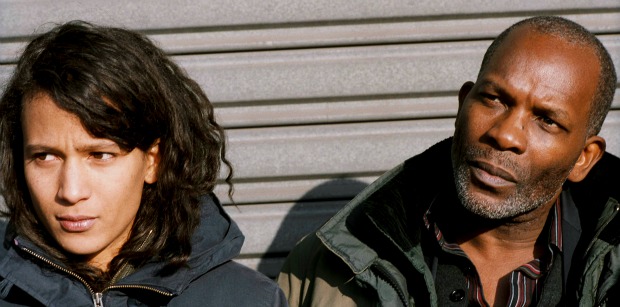35 Shots of Rum
A film about real human behaviour.
Plot summary
The relationship between a father and daughter is complicated by the arrival of a handsome young man.

“The time’s right for 35 shots” says a friend at the bar. “What is this thing…about 35 shots?” enquires another. “It’s an old story,” responds Lionel, the male lead. “But I won’t drink them…not tonight”.
Thirty-five shots of anything involving alcohol is enough to send any person tumbling off their bar stool and crashing to the floor with knowledge of a tumultuous day to follow. So, what is it about 35 shots of rum (or ’35 rhums’ as they say in France) that is so special? This isn’t answered at a reluctant retirement party of a friend and colleague. The time wasn’t right then but it seemingly will be at some point in the film.
35 Shots of Rum is, like many by Clare Denis, a film about real human behaviour. The focus is on the relationship of Lionel, a train driver, and his student daughter. A relationship that, in the opening sequence, plays out like husband and wife. He returns home after a long days work, she puts his slippers on and cooks him dinner. It is only when she addresses him that it is clear that they are father and daughter, such was the interaction between them.
Single-parent Lionel (Alex Descas) works long hours on the trains whilst his daughter, Joséphine (Mati Diop), goes to school and works at a music shop. They live alone at an apartment in a building they share with Gabrielle (Nicole Dogué), an apparent former lover or admirer of Lionel and Noé (Grégoire Colin), a handsome young man who appears to have a long-term interest in Joséphine but is wary not to interrupt the relationship with her father.
There is something almost sexual about the interplay between Lionel and Joséphine but it is never to a point where it appears incestual; there is hand-holding in the bedroom and a kiss on the cheek that is perhaps two seconds too long. In one scene, in which his daughter dances provocatively with an apparent long-term love interest, Lionel makes a move on an attractive waitress seemingly out of jealousy, overprotective anger or adolescent one-upmanship.
Metaphors and symbolism are placed at every turn, with everything from trains and cigarettes to rice-cookers – some much more explicit than others. The nature of their restricting relationship is consistently apparent in the dialogue. “We revolt because, for so many reasons, we cannot breathe” a student in Joséphine’s class quotes Fanon as saying. “The system must change” says another in a school scene that is seemingly there for that message alone.
The hesitant retirement of a close friend is a sidetracking interlude to the very succinct notion that the characters cannot always live their lives in this way. At some point, the bird must fly the nest. It is this reluctance of change that Lionel shares with his retiring friend.
Denis has made an enthralling, and unusually accessible, window into a family needing, and preparing themselves, for change. The shots and music merge flawlessly and this is second only to the character development. 35 Shots of Rum is a fundamental story but, by that very nature, is entirely captivating.











COMMENTS